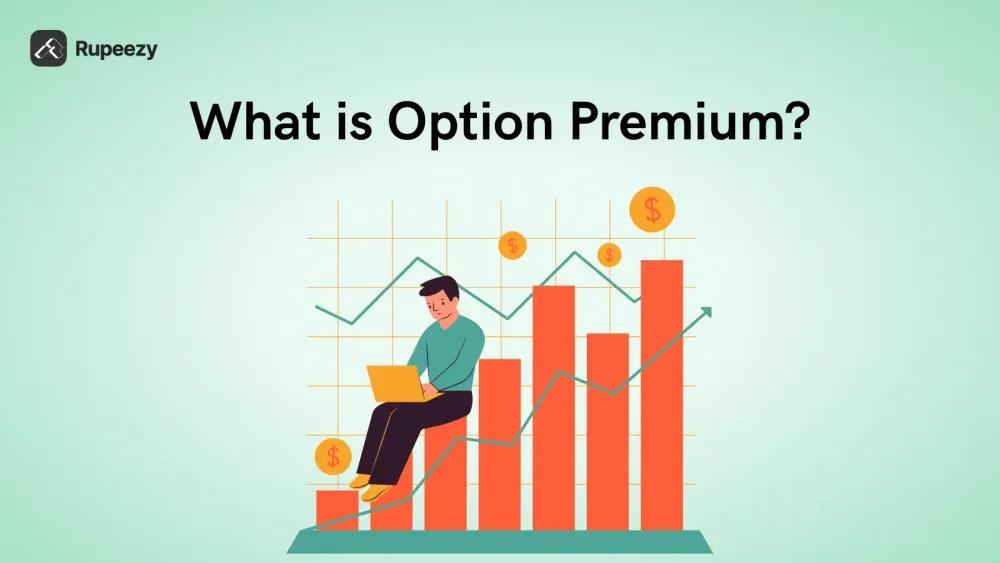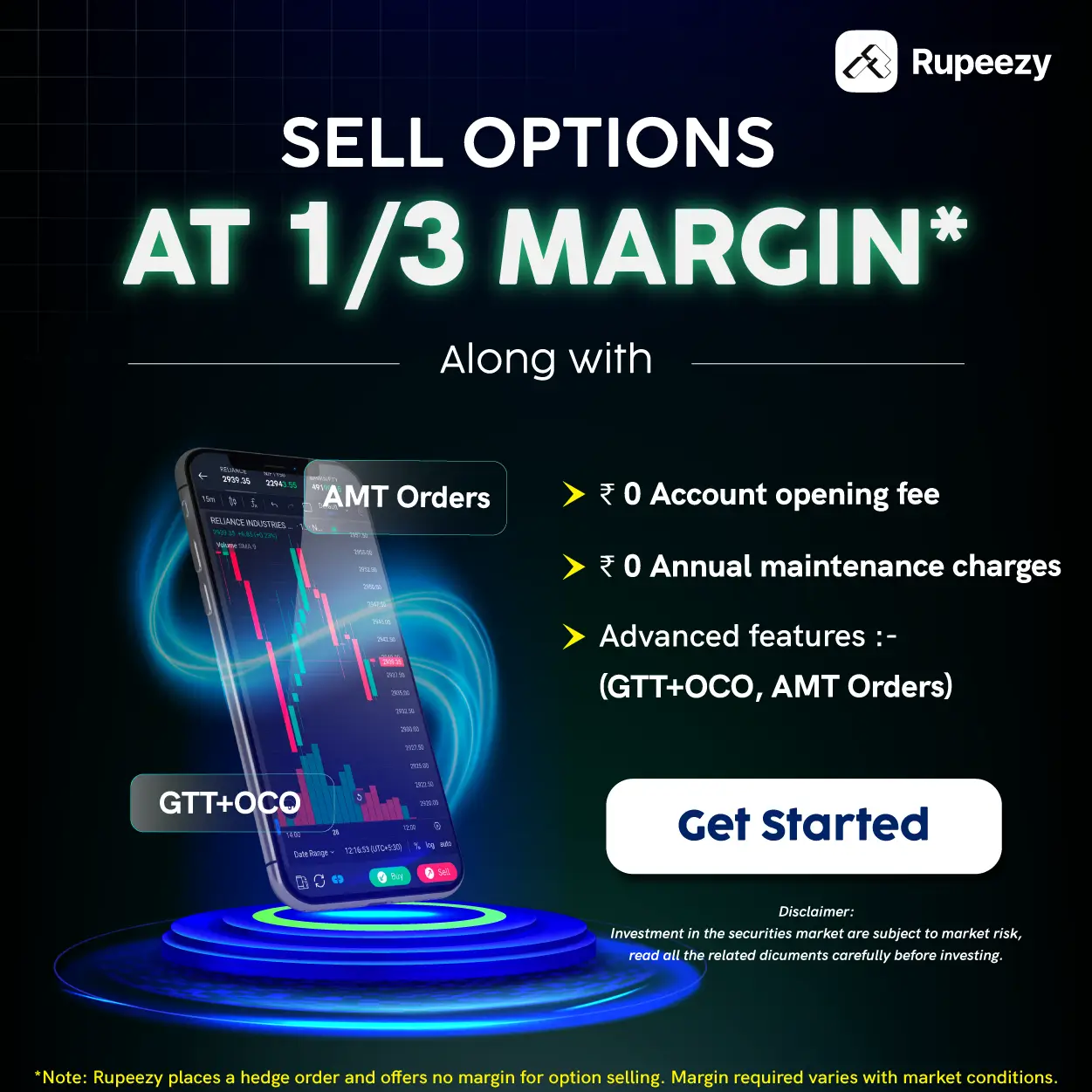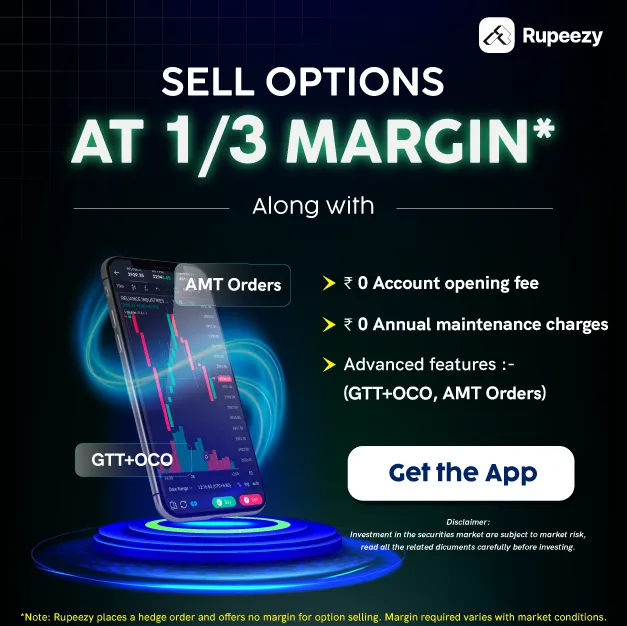What is Option Premium?


00:00 / 00:00
When you plan to buy anything from the market, you would need to pay a certain price for the same. But at times, you are required to pay an additional amount as well, which is called the premium. Well, this is applicable when you are trading in the stock market, especially in the options contract.
In the simplest terms, it is the premium that the investor pays to the seller to obtain the right. But it is important to note that there is no obligation to buy or sell the underlying asset at a specific strike price before or on the expiry date.
But do you know what all factors influence it? Well, read this guide to know all the details and also explore how you can check the same.
Why Option Premium Matters for Traders
Option premium is the price a buyer pays to the seller of an option contract in the stock market. This payment gives the buyer the right. There is no obligation to buy or sell the underlying asset at a fixed strike price within a specified time.
However, the seller is under the obligation to fulfill the contract when the buyer decides to exercise the option. The premium is quoted on a per-share basis. Now, since there is only one option trading contract that includes multiple shares, the total cost might be higher.
The key features of the option premium are as follows:
Paid upfront by the option buyer to the seller
Consists of intrinsic value and time value
Non-refundable once paid
Maximum loss for the buyer of the option
Income or profit for the seller of the option
Changes daily with market movements and volatility
Quoted per share but applies to the full contract size
How to Calculate Option Premium
The option premium is not calculated on a random basis. It is calculated based on the two main parts, which are as follows:
1. Intrinsic Value
This is the real, tangible value of the option if exercised today.
For a Call Option, Intrinsic Value = Current Market Price – Strike Price (only if positive, else zero).
For a Put Option, Intrinsic Value = Strike Price – Current Market Price (only if positive, else zero).
2. Time Value
This is the additional value that shares the potential to make more profit before the expiry of the time. It is impacted by various factors, starting from the time left to market volatility.
So, the formula is as follows:
Option Premium = Intrinsic Value + Time Value
Example for Quicker Understanding
Now, you know the formula for the calculation of the option premium. To have a clearer understanding, it is important to understand its application as well. For this, here is a quick example for you.
Strike Price: Rs. 500
Current Market Price: Rs. 530
Time Value: Rs. 20
The above-mentioned contract has one month to expiry. Also, this contract includes 100 shares.
Now, to calculate the option premium, there are certain steps to follow.
So, first, we would need to calculate the intrinsic value. For this, we would need to find the difference between the current market price and the strike price.
This will be Rs. 30.
Now, let us find the option premium value here.
Option premium = 30 + 20 = Rs. 50.
Since we have 100 shares in the option contract, this would come down to Rs. 5000.
Factors Affecting Option Premium
The price of an option contract keeps changing with market conditions. While there are various factors that impact the same, here are the key ones that you should know:
Current Market Price of the Underlying Asset
The closer the asset price is to the strike price, the higher the premium. If the market price moves deep in favor of the option buyer, the intrinsic value rises, and so does the premium.
Strike Price
Strike price determines whether the option is in-the-money, at-the-money, or out-of-the-money. Options that are in the money have higher premiums. This is because they carry real value.
Time to Expiry
When the time to expiry is more, the chances of earning profits are high as well. This increases the time value, making the premium costlier. As expiry nears, time value erodes quickly (known as time decay).
Volatility
Higher volatility increases the possibility of favorable price swings. This is where traders are ready to pay more, as the option premium would move up as well.
Interest Rates
Interest rate changes can affect the cost of carrying the underlying asset. This directly impacts the option premium. Now, when the rates are rising, the call options premium increases, but the put options premium reduces.
Dividends or Corporate Announcements
If the underlying stock is expected to pay dividends or has major events ahead, premiums may adjust to reflect these potential impacts on prices.
No matter which option trading broker you are working with, these are the factors that you must keep in mind. Proper analysis of these points will ensure that you not only make the right investment call but also generate the profits that you intend to. This is what makes option premiums a great choice for investors.
Conclusion
Option premium is the price you pay to participate in options trading. It is much like the entry ticket that you pay for. But what is unique about it is that it shares both the current and the potential gain value at the same time. This is all you can get before expiry.
By understanding how premiums are calculated and what factors move them, investors can make smarter decisions. It can be about buying, selling, or waiting.
But when you are planning to invest in options and gain from the option premium, you need to evaluate well. This is where you would need the tools and expert guidance as well. So, if you are ready, then start your journey with Rupeezy.
Prepare to grow your investment and build wealth.
FAQs
Q1. Is the option premium refundable if the trade does not work out?
No, the option premium is a non-refundable cost. Once paid by the buyer, it becomes income for the seller. This is irrelevant to how the trade was done.
Q2. Does the option premium change daily?
Yes, option premiums fluctuate every day. It is based on various factors like asset price movements, volatility, and time left to expiry. This is why traders monitor option chains closely.
Q3. Can the option premium be paid in installments?
No, the option premium must be paid in full upfront when you enter the contract. There is no way to pay the same in the installment format.
Q4. Who decides the option premium in the market?
Option premiums are determined by demand and supply in the market. Then there are other factors like volatility, time, and interest rates that play an important role in the calculation of the same.
Q5. Is a higher option premium always better for the buyer?
Not necessarily. A high premium means you are paying more upfront, which increases risk. Buyers must check whether the premium is justified compared to the potential profit.
The content on this blog is for educational purposes only and should not be considered investment advice. While we strive for accuracy, some information may contain errors or delays in updates.
Mentions of stocks or investment products are solely for informational purposes and do not constitute recommendations. Investors should conduct their own research before making any decisions.
Investing in financial markets are subject to market risks, and past performance does not guarantee future results. It is advisable to consult a qualified financial professional, review official documents, and verify information independently before making investment decisions.

All Category









